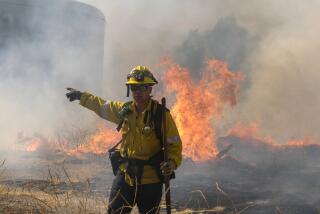Does homeowners association have to carry earthquake insurance?
- Share via
Question: I’ve been president of our homeowners association for several years. We have fewer than 20 units and have managed to keep our HOA dues low at around $330 a month, mainly because we don’t have earthquake insurance. We’ve saved a lot of money because we haven’t paid for earthquake insurance for more than 15 years and have been very lucky. Do we have to get it?
Answer: With one earthquake, your luck may run out. However, after 15 years of savings, and in the best interests of the association, the board should have been depositing those savings in an interest-bearing bank account. If so, your association would now have the money to purchase earthquake insurance.
Pursuant to Corporations Code section 7231, you and the other board directors have an obligation to act in the best interests of the association and its titleholders who fund the bank accounts. Business and Professions Code section 11018.1 states in part: “There are actions that can be taken by the governing body without a vote of the members of the association which can have a significant impact upon the quality of life for association members.” Hence, your board duties do not stop at purchasing insurance policies. Your actions must simultaneously protect each titleholder’s fractional interest in that development because their assets could be at risk.
Although keeping dues low is a valid concern, artificially suppressing dues at the expense of the safety and stability of the association’s infrastructure is not a “good faith” course of action, let alone sound business judgment. The association as a whole was organized to manage the development and the board can, and should, levy assessments to fulfill that management obligation, according to Civil Code section 1366.
Unless the governing documents of an association impose more stringent standards, Civil Code section 1365(f)(1) requires the association to prepare and distribute to all of its members a “summary of the association’s property, general liability, earthquake, flood, and fidelity insurance policies” not less than 30 days nor more than 90 days preceding the beginning of the association’s fiscal year. This summary must include the name of the insurer, the type of insurance, the policy limits of the insurance and the amount of deductibles, if any. Although this section does not specifically require the enumerated policies to be carried by the association, it is mandatory that a lack of coverage be properly disclosed to all titleholders.
On an annual basis, every titleholder should demand that the board produce copies of all insurance policies under a document request pursuant to Civil Code section 1365(f)(4), which states: “Any association member may, upon request and payment of reasonable duplication charges, obtain copies of those policies.”
The mere mention of “earthquake insurance” under Civil Code section 1365 should alert even the most foolhardy boards that it is an important element in association management. At the very least, for directors attempting to avoid individual liability, the board must make a reasonable inquiry into obtaining coverage and make responsible and informed decisions regarding such policies.
If no coverage is ultimately obtained, the board must provide its plan to titleholders, its reasoning as to why no policy was obtained and its plan for how the association will pay for repairs to earthquake-damaged property without insurance. That information must be discussed in an open meeting and documented in the board meeting minutes distributed to owners. Even if assessments for earthquake insurance premiums are prohibitively expensive, some alternative plan or fund must be in place.
The board’s decision not to carry earthquake insurance may have an additional effect on each titleholder. Many insurance companies will not insure individual property, units or homes located in common interest developments unless that association is covered by adequate insurance, including earthquake coverage. If a catastrophic event occurs, these owners will be looking to past and present board directors who made these decisions, and the association, for indemnification and reimbursement for damages.
Zachary Levine, partner at Wolk & Levine, a business and intellectual property law firm, co-wrote this column. Vanitzian is an arbitrator and mediator. Send questions to P.O. Box 10490, Marina del Rey, CA 90295 or [email protected].
More to Read
Sign up for Essential California
The most important California stories and recommendations in your inbox every morning.
You may occasionally receive promotional content from the Los Angeles Times.






